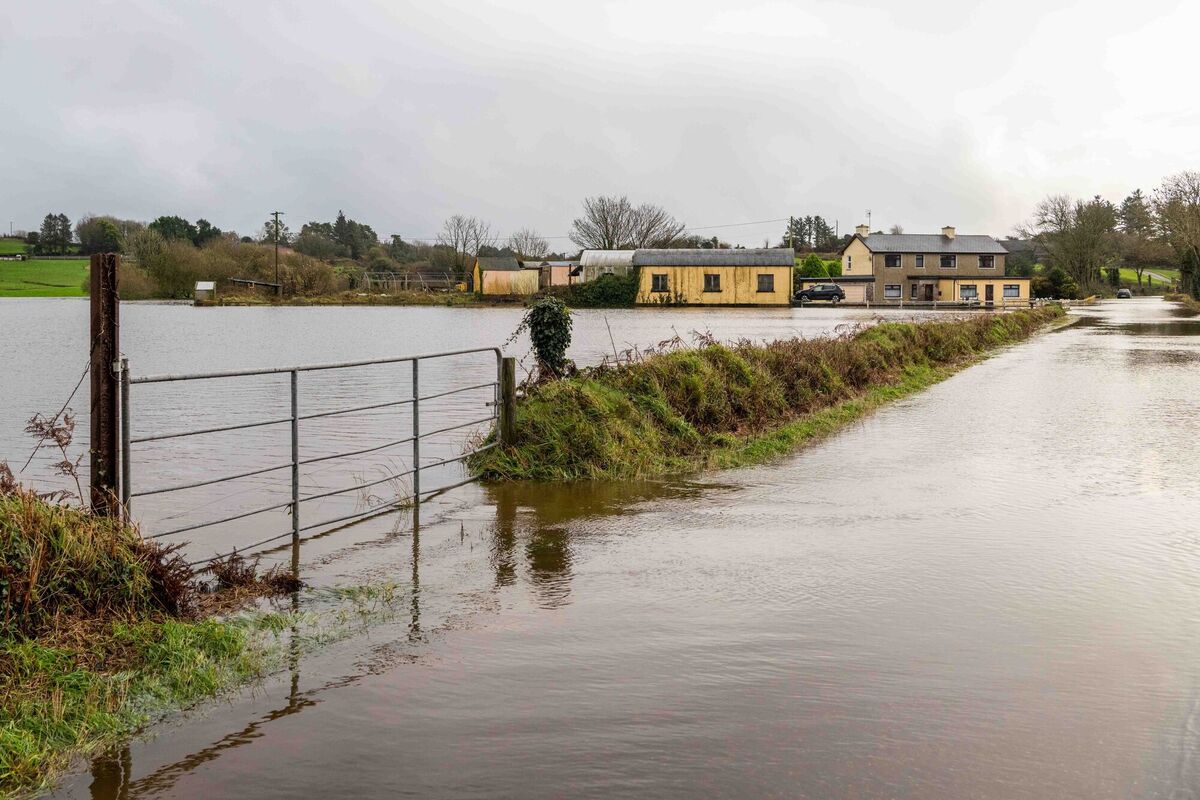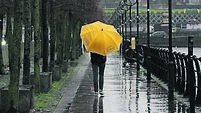Ireland's 'luck will run out' in avoiding extreme flooding due to climate change, scientists say

The rainfall associated with Storm Claudia was 12% higher than the pre-industrial climate, scientists found. Picture: Larry Cummins.
Human-induced climate change heightened the risk of flooding during Storm Claudia earlier this month and “our luck will run out eventually” when it comes to avoiding an "extreme event", scientists have said.
A group of researchers from Maynooth University and climate scientists from Met Éireann studied data from the orange-warning storm that hit Ireland only a few weeks ago, and found the rainfall associated with Claudia was 12% higher than the pre-industrial climate.
Moreover, we can expect similar events in future to carry even greater flooding risks as global warming continues.
“It is important to stress how lucky Ireland has been in recent years when it comes to the occurrence of extreme weather events such as storms and heavy precipitation events, and that they haven't occurred at the same time as a spring high tide,” Lionel Swan, Maynooth PhD student at the WASITUS project at the Icarus Climate Research Centre, said.
“The Midleton flooding of 2023, Storm Éowyn in January, and Storm Amy in October of this year all coincided with either a neap tide, or with a spring low tide.
The researchers said the heavy rain recorded during Storm Claudia followed several unusually wet months in Ireland. In September, 144% of the average rainfall was recorded, with October seeing 123% of its average rainfall.
There were localised extremes in November, with Johnstown Castle in Wexford recording 58% of its average rainfall for that month in a single 24-hour period.

All this left soils saturated, river levels elevated and catchments “highly responsive to additional rainfall”.
“While the potential threats from the two-day rainfall event in the south-east were well communicated to the public, flood defences were seriously tested,” Maynooth’s Dr Claire Bergin, from the WASITUS project, said.
“With further global warming we can expect the magnitude of rainfall to increase, with more rain falling during events like this.”
By looking at both the two-day rainfall event for Storm Claudia which affected Dublin, Wexford and Wicklow in particular, and the 30-day rainfall across nine counties with rivers that feed into south-eastern areas, the scientists said they pinpointed how intense short-term rainfall and prolonged wet conditions heightened the flooding risk in these areas.
It said both the two-day and 30-day scenarios have become “twice as likely” as would have been the case in a pre-industrial climate.
It said that, with 3C of global warming which scientists say must be avoided at all costs, similar two-day rainfall events like this would happen every one to two years, while the prolonged 30-day rainfall events would happen once every two years.
Met Éireann climatologist Paul Moore added: “This is one of the consequences of living in a warmer world.”
CLIMATE & SUSTAINABILITY HUB














